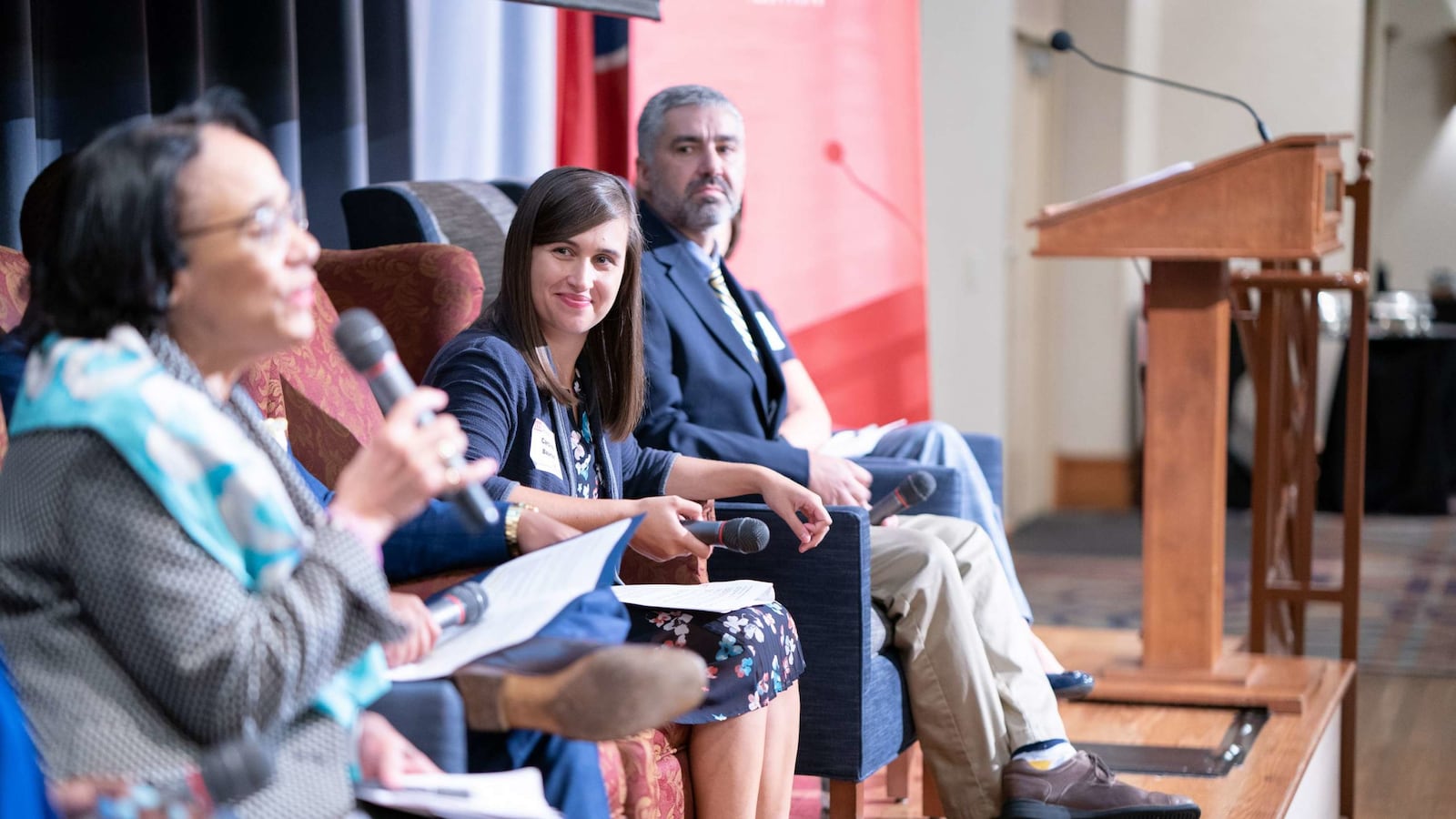During my time as a reporter for Chalkbeat Tennessee, the most gratifying moments often arrived when I least expected them.
Four years ago, I was standing in a dimly lit classroom inside a Memphis community center filled with parents looking for information about their children’s future.
I was in my first year as a reporter at Chalkbeat. After reading an analysis I wrote that examined where students went after their low-performing schools closed, a parent advocacy group invited me to talk about the story and answer parents’ questions.
I don’t remember specifically what they asked, but I do recall how nuanced and personal their questions were. They intimately understood the community-wide impact of school closures – many of the middle and high schools they’d attended were already boarded up.
I left that meeting with new story ideas and sources – and felt more grounded in a community directly affected by the issues Chalkbeat covers. And more than that, I left with the conviction that my evening with those parents – as much as the analysis I had produced – represented journalism in its highest form.
This kind of community work falls under the category of “engagement,” a widely used but often poorly defined term. At Chalkbeat, engagement means involving our communities throughout the journalism process, from story ideation and reporting to sharing and reflection, which (hopefully) leads back to more ideas and future reporting.
In other words, engagement is reporting with and for communities, not on or about them. Engagement is baked into the core of Chalkbeat’s mission to provide essential reporting on schools across America, especially those serving children who have historically lacked access to a quality education.
As we grow, our commitment to engagement requires a bigger team. You’ve already met Chalkbeat’s engagement editor, Caty Green. I’m joining her as Chalkbeat’s first community engagement strategist. I’ll be working across our network of seven bureaus to infuse reader input into our coverage, organize local events, and reach people through other offline methods like text messaging. Next month, you’ll hear from our new social media strategist, Susan Gonzalez.
Here is what my work might look like: a series of office hours in local neighborhoods, or helping to create questionnaires for a collaboration with another news organization, such as this reporting effort between Chalkbeat New York and THE CITY. My work will involve designing our annual listening tour and then helping Chalkbeat report out the stories that meet the needs of those we heard from.
That meeting three years ago with Memphis parents? It turned into a series called Book Club, where parents regularly read Chalkbeat articles and met to discuss them, sometimes with our journalists present and sometimes without. That’s the ultimate ambition – not to treat engagement as a box to check off, but as a way to build trusting and lasting relationships with our readers.
I know that engaged journalism doesn’t just magically happen – we need your help and input to produce it.
So, what kinds of Chalkbeat events do you want to attend? What community partnerships could we build? How else should we be reaching out to make education reporting available and accessible? I’m listening at cbauman@chalkbeat.org, or you can reach the engagement team at community@chalkbeat.org.
I can’t wait to learn from you.


